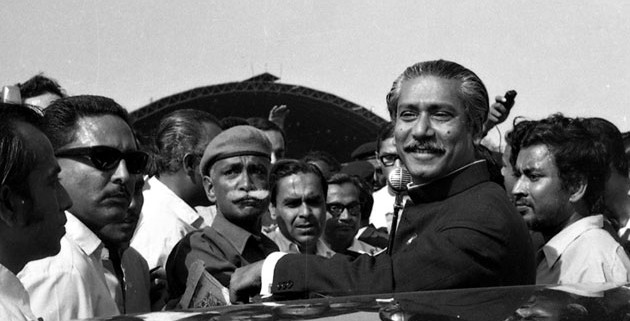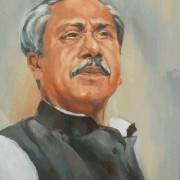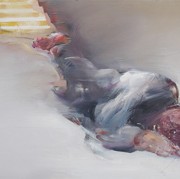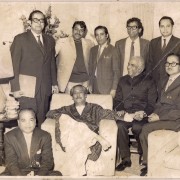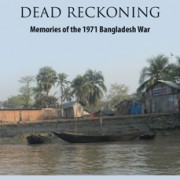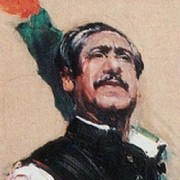He liberated his country twice
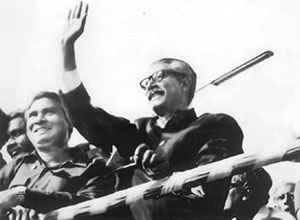 Just after three days (15th August), the nation is going to observe the national mourning day. 37 years ago, the father of the nation was brutally murdered this day along with most of his family members. Now I think we should not mourn but remember him as the saviour of a lost nation and its thousands-of-years-old culture.
Just after three days (15th August), the nation is going to observe the national mourning day. 37 years ago, the father of the nation was brutally murdered this day along with most of his family members. Now I think we should not mourn but remember him as the saviour of a lost nation and its thousands-of-years-old culture.
Though he was killed, he is not a dead person. He is very much alive among his people and they adore him as the founder of their free homeland. We only mourn for dead persons but he is still alive in the history that he himself created. In the US, President Abraham Lincoln was killed long ago. The Americans still remember him and do not mourn for him because Lincoln is still the living symbol of modern American democracy. He is still a living person in their memory and in their history.
I think, in Bangladesh, national mourning day should have been called a national memorial day. Now, Sheikh Mujib is called the founding father of Bangladesh throughout the world. His ranking is now with some other greatest world leaders like George Washington, Abraham Lincoln, Kemal Ataturk, Ahmed Sukarno and many others.
After his murder, a great British humanist, Fenner Lord Brockway, sent a condolence letter to a Bangladeshi community leader in London. In the letter he said, “Sheikh Mujib might not be as great leader as Gandhi, Washington or Lincoln; but his achievements were greater than all other great leaders. Gandhi or Washington liberated their country once but Sheikh Mujib liberated his country twice.” He fought against the Pakistani Military rulers risking his own life and liberated his country. After returning to his independent country, he took a stand which made it possible for Bangladesh to get itself free of the presence of Indian forces. If Sheikh Mujib could not come back to Bangladesh in time after independence, the Indian forces might not have left the country in such a short period.
It was very unfortunate that Bangabandhu Sheikh Mujibur Rahman did not get the time to rebuild his country, but what he achieved within the short time of three and half years, was a miracle. He reconstructed the war devastated economy of the country, got recognition from most of the countries of the world including the US and formulated a new system of governance which would change the face of the country and could pave the way of its development.
In his political thinking, Sheikh Mujib was a social democrat like Jawaher Lal Nehru of India. But his difference with Nehru was in political goal. Nehru followed a policy of mixed economy and gradually took a more capitalistic path than a socialistic one, but Mujib wanted to go for command economy of socialism and left the political multi-party system.
In one of his speeches, he explained that the society was very class ridden and one of the classes was extremely powerful with the privileges of colonial times. We needed to break the shackles of that system. He wanted to establish a democracy not only for the urban middle class but for the whole exploited classes of the country. That is why he termed his new system as his second revolution. But Sheikh Mujib could no mobilize the social forces to finish his second revolution. A counter revolutionary force in the country conspired to murder him and overthrow his government with the help of world imperialism and capitalism. They were afraid that Mujib would go for socialism and already he had an alliance with the Indo-Soviet bloc. The Middle Eastern kings and sheikhs were afraid of his secularism. So, some of the kingdoms also joined their hands with these conspirators.
After the murder of Mujib, the civil and military bureaucracy of Bangladesh, which was under the heavy influence of the past British and Pakistani colonial masters, took over power with the support of discredited politicians and communal elements. They immediately removed two of the main principles of the state: socialism and secularism from the Constitution. A military dictator Ershad arbitrarily introduced the state religion in the Constitution. It was the military rulers who rehabilitated the communal and fundamentalist forces in national politics.
Sheikh Mujib’s political party BAKSAL (Bangladesh Krishok Shromik Awami League) was a political conglomeration of left and centre left parties. After the revival of political activities in the country BAKSAL was dissolved. Old parties were revived. The Awami League was also revived. But without a proper leadership it was unable to confront the military rulers.
When Sheikh Hasina, the daughter of Sheikh Mujib, came back to Bangladesh from abroad and took the leadership of the party then the party became active and vibrant again. Though she was not an experienced leader at that time, she brought back the magic touch of her father to the party. It became the most powerful political organization again. Her task was enormous. There was a fight between the right and the left groups of the party and the older leaders like Dr Kamal Hossain and others were waiting in the wings for Hasina to fail so that they could capture the leadership.
It was like a fight between Indira Gandhi and the Kamaraj group of the Congress party of India for the leadership of the party. When Indira Gandhi became the Prime Minister of India, the older leadership of the Congress under Kamaraj, first supported her in the hope that she would eventually fail and they would be at the top of the party.
But Indira with the support of the left wing of the Congress defeated them and proved she was a much more capable politician than the elders. The same thing happened in Bangladesh. The older leadership in spite of their manoeuvring capacity and outside support could not defeat Hasina and did not succeed in their plan. Hasina won two elections and in the face of numerous attempts on her life she is still alive and is the Prime Minister of Bangladesh. She hanged those killers, after a proper trial, who had murdered the father of the nation and has started the trial of war criminals of 1971.
She has tried to restore the secular character of the Constitution and started pursuing a foreign policy to keep the country in the middle path. She also has failures. Her government, though it had success in the field of agriculture and education, failed to combat corruption, social crimes, especially the misdeeds of the Students’ League.
The urban people are not satisfied with the government’s handling of water, electricity and gas problems. They are vocal about the law and order situation also. The government has failed to get help from the World Bank for constructing the Padma Bridge. And the Nobel laureate Dr Yunus is also gathering support to fight the government’s decision about the Grameen Bank.
Not only the external powers but a large number of the elite in the country and a section of the media are supporting Dr Yunus for various reasons. The opposition BNP, after their devastating defeat in the election of 2008, is showing their strength again in the streets and Jamaat is fighting tooth and nail to thwart the trial of the war criminals of ‘71.
Now Hasina is facing opponents on many fronts. Though the government is not unpopular among the rural voters, but most of the urban population is against them. Some people compare the present time of Sheikh Hasina with the earlier period of 1975 when her father’s government was in power. They say, “She should learn from the history of her father’s government, and should take strong corrective measures to combat not only her political opponents but the enemies of the ideals of independence.”
This year Awami League should not only observe the national mourning day. They should use this day to arm themselves with the ideals of the Father of the Nation. There is only a year for the Awami League government to face another election. Still there is time and the 15th August should alert the government and the party in power to correct themselves and to mobilize the social forces to fight against a very powerful combination of antagonists and enemies.
London, 10 August 2012
Author/Editor : Abdul Gaffar Chowdhury

